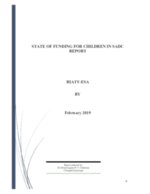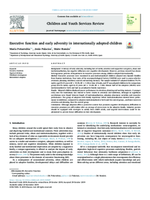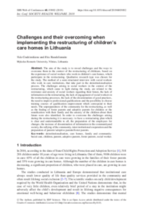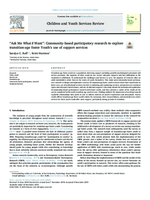Increasing child protection workforce retention through promoting a relational-reflective framework for resilience
This Australian longitudinal, qualitative study explored child protection worker perceptions and experiences of resilience to inform understandings of worker resilience, and implications for worker functioning and workforce retention.




